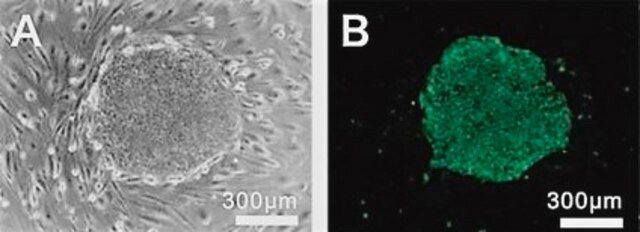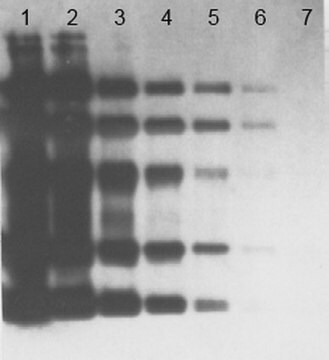SCT240
BioTracker™ Blue TFCH Oxidative Stress Probe
Sinônimo(s):
Live Cell Imaging Probe
About This Item
Produtos recomendados
fonte biológica
human
Nível de qualidade
peso molecular
calculated mol wt 280.63 kDa
embalagem
vial of 1 mg
fabricante/nome comercial
Millipore
modo de crescimento
N/A
técnica(s)
cell based assay: suitable
flow cytometry: suitable
immunofluorescence: suitable
método de detecção
fluorometric
Condições de expedição
dry ice
temperatura de armazenamento
−20°C
Descrição geral
Aplicação
Características e benefícios
forma física
Armazenamento e estabilidade
Outras notas
Informações legais
Exoneração de responsabilidade
Palavra indicadora
Warning
Frases de perigo
Declarações de precaução
Classificações de perigo
Eye Irrit. 2 - Skin Irrit. 2 - STOT SE 3
Órgãos-alvo
Respiratory system
Código de classe de armazenamento
11 - Combustible Solids
Classe de risco de água (WGK)
WGK 3
Certificados de análise (COA)
Busque Certificados de análise (COA) digitando o Número do Lote do produto. Os números de lote e remessa podem ser encontrados no rótulo de um produto após a palavra “Lot” ou “Batch”.
Já possui este produto?
Encontre a documentação dos produtos que você adquiriu recentemente na biblioteca de documentos.
Nossa equipe de cientistas tem experiência em todas as áreas de pesquisa, incluindo Life Sciences, ciência de materiais, síntese química, cromatografia, química analítica e muitas outras.
Entre em contato com a assistência técnica







